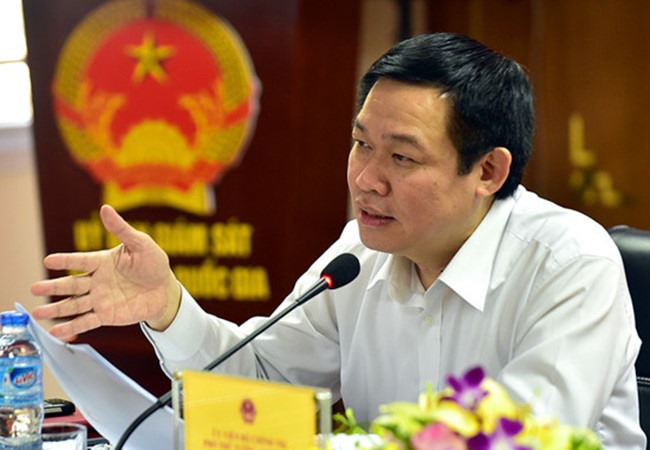Deputy Minister Vuong Dinh Hue urged the State Audit of Viet Nam (SAV) to pay more attention to human resource management at State-owned enterprises (SOEs) when auditing their activities.

Deputy Prime Minister Vuong Dinh Hue urged the State Audit of Viet Nam (SAV) to pay more attention to human resource management at State-owned enterprises (SOEs) when auditing their activities.
At a meeting on Tuesday with SAV authorities on restructuring the activities and business valuation of SOEs, Hue emphasised the importance of improving personnel management in SOEs over the next five years.
“It is necessary to review the number of employees at State-owned corporations and groups. Low productivity and low business efficiency stem from personnel redundancy,” he said.
Hue said improving organisational and personnel management was key to improving the efficiency of business activities and of State capital in enterprises. It is also one of the goals of the equitisation process that has been conducted at major SOEs in recent years.
According to Government regulations, all enterprises wholly-owned by the State must be audited on business valuation and handling financial issues before their equitisation plans can be approved.
A report by the SAV on the implementation of the “Plan for restructuring and business valuation at SOEs in 2011-2015” shows that 499 enterprises underwent equitisation during this period. All enterprises recorded better business performance after being equitised, which contributed more to the State budget and increase workers’ income.
By divesting from these enterprises, the State earned about VND36.5 trillion (US$162.2 million) from a book value of VND26.2 trillion (US$116.5 million).
However, SAV said it figured out that in many cases, the process of business valuation and handling of financial issues before announcing the value of enterprises were inaccurate and did not comply with current regulations. This resulted in the devaluation of State properties and considerably affected the State’s benefits.
The Deputy PM said that in order to tackle the problem, the Ministry of Finance was in the final phase of compiling a decree on defining the value of SOEs, with a focus on trademark and trade advantages.
He also asked the SAV to pay more attention to the assessment of allocating land funds before equitisation. This is due to the fact that many investors failed to use land in conformity with State planning despite a commitment to do so before the equitisation began.
He said the Government was asking related ministries and sectors to study whether enterprises should be allowed to change the purpose of land after equitisation and if so, who should be responsible for granting such permission. He also asked the SAV to contribute its views to the Government on this issue.
The Deputy PM emphasised that the State must maintained its role as major stake-holder in key enterprises and try to turn them into strong corporations and brand names highly competitive not only domestically but also internationally.
The number of SOEs may be reduced, but their business efficiency must increase and they must become stronger, he said. – VNS





